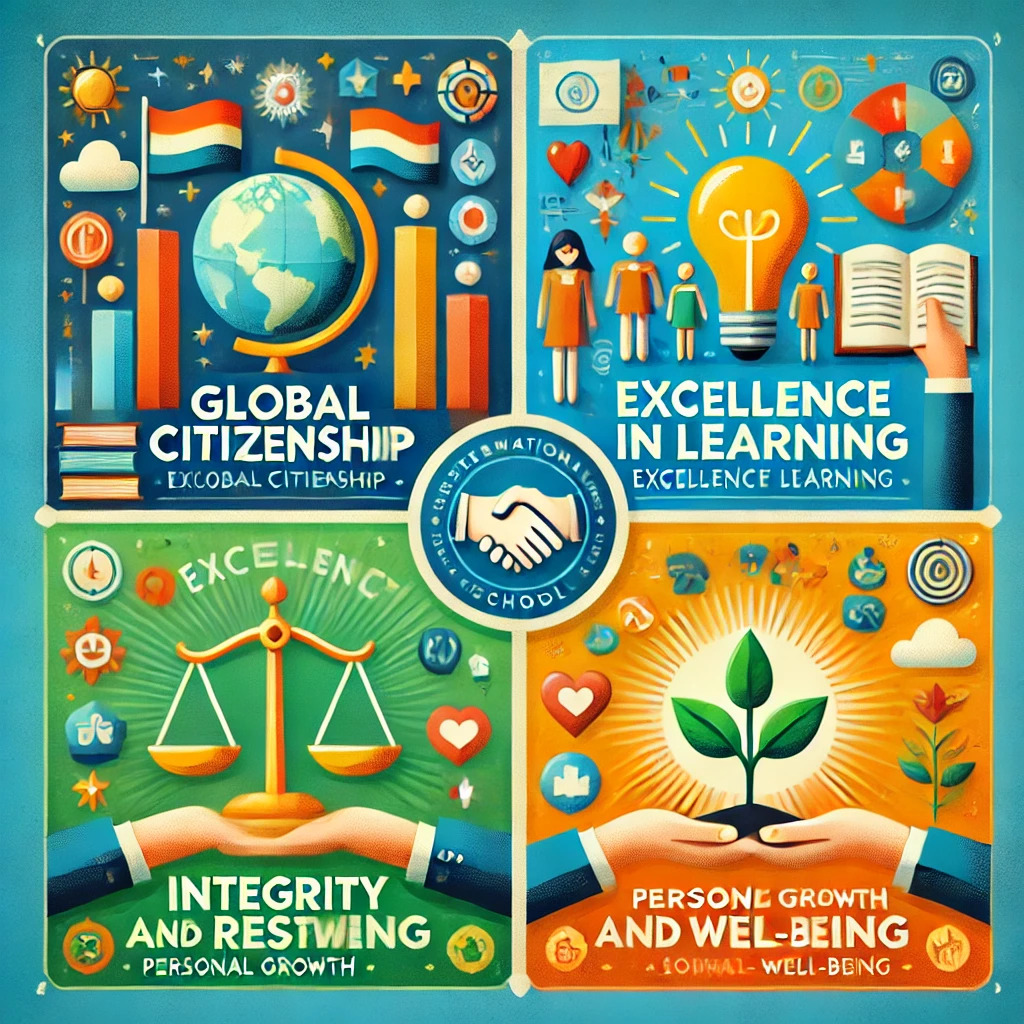The school ‘experience’ is potentially the greyest area in international education. Schools advertise it, teachers deliver it, and students are recipients of it. But what exactly is it? To understand the meaning behind this term, we must first acknowledge both its complexity and universal prevalence.
Defining ‘Experience’
Thinking about it subjectively, ‘experience’ is terminologically vague in and of itself. Almost every reputable international school brand will mention the term ‘experience’ on their website, yet very few, if any, offer a complete definition as to what their experience is.
The remainder of this article does not seek to define the term but instead offers practical advice on framing the narrative and understanding the intricacies of your international school’s ‘experience’.
The easy and ideological answer would be to state that the school experience is based upon chosen values, but how do those values manifest themselves practically? From my many conversations on this matter, the common denominator of the school ‘experience’ is that it’s something ‘lived’ and ‘felt’, but conceptualising kindness or confidence as something innately participatory or sensorial is troublesome. Furthermore, school values are notoriously imprecise, often adopting the same buzzwords that parents have become immune to.
As a case in point, I asked ChatGPT to design a set of international school values. Whilst it made some errors producing the infographic, you may find the values it suggested (Global Citizenship, Excellence in Learning, Integrity and Respect, Personal Growth and Wellbeing), and indeed the accompanying image, strangely resonant.
ChatGPT Prompt 1: ‘Design the core values of an international school.’
ChatGPT Prompt 2: ‘Can you turn those four values into an infographic?’
 Source: Tyrone Ruth
Source: Tyrone Ruth
If you want your school ‘experience’ to be something specific to the organisation you run, I suggest values are not the only anchor upon which to base it. They may, and indeed should, comprise a component part, but values alone will likely not differentiate your ‘experience’ from that of your competitors.
Experience and Experiential Learning
Linked to the ambiguity of the school ‘experience’ is its frequent confusion with experiential learning. Experiential learning is a learner-centered pedagogical theory and practice, widely regarded for allowing moments of synthesis and reflection for students. It focuses on learning with and through experiences, rather than learning about them. Examples include work experience, exchange programmes, lab experiments, outdoor education, role play and more.
Schools will often mention their unique ‘experience’ and attribute it to the Duke of Edinburgh Award, international trips, and co-curricular options. In these cases, the school experience is being equated with experiential learning – a valuable component of such, but not to be confused as the total product.
“Your ‘experience’ could, and rightly should, showcase your offerings, differentiate you from the ever-increasing competition, and detail how your product is ‘lived’ and ‘felt’”.
Experience and National Identity
For many international schools, the ‘experience’ is framed around national identities. This could be, for example, the influence of the host nation of the school (e.g. an international school based in China), the permeating national values embedded within in a taught curriculum (e.g. an international school in India teaching a US curriculum), or the nation on which their founding school is fashioned (e.g. a British satellite college based in the UAE).
Where you are, what you teach, and what you represent is a fundamental part of the holistic experience. This is evidenced by the substantial amount of school budgets set aside for accredited curricula, architecture, and branding. There are a lot of great benefits to exporting national identity overseas, but it is also a thorny issue. Whilst your ‘experience’ will undoubtedly include elements of national identity, it requires careful navigation when iterated on the global stage. If your ‘experience’ is only representing national values overseas, this can look, to some, like colonialism. Instead, as one school described it, have your national identity as a distinguishing “flavour”, one element of your total ‘experience’.
Experience: More than a Buzzword
As we continue to move away from rote learning and assessments, I believe the school ‘experience’ can constitute more than marketing buzzwords or confusing terminology. Your ‘experience’ could, and rightly should, showcase your offerings, differentiate you from the ever-increasing competition, and detail how your product is ‘lived’ and ‘felt’ rather than taught. I implore you to put time aside in your SLT or board meetings and seek clarification on what it is. Be bold enough to define or re-define what you mean by your school ‘experience’ on your website.
Your definition of ‘experience’ may include:
- Iterations and instances of your core values
- Modes of experiential learning
- Communication and understanding of national identities
It may also reference the following:
- Facilities
- Co-curricular offering
- Architecture, landscape, and environment
- Rituals
- Pastoral system
- History and heritage
- Alumni
- Branding
- Prestige
- La Distinction
- Uniform
- Culture
As you decide, do so with the understanding that an ‘experience’ is an amalgamation of component parts, a constellation of singularities. It is much more than what is mentioned in this article, and it is idiosyncratic to you and your organisation. It may be better defined as an ‘experience-scape’, a wide landscape of touchpoints and stimulations. Note that much like in a theatrical performance, there are multitudinous elements that combine to create a fantastic and memorable production, and to ensure the longevity of the show you must understand what an evolving audience enjoys.
By Tyrone Ruth

Tyrone Ruth is a seasoned educationalist and doctoral researcher in the field of international education. He has written for a number of digital and print media, sharing his critical reflections on trends and changes in the global education landscape. You can connect with him on LinkedIn.



